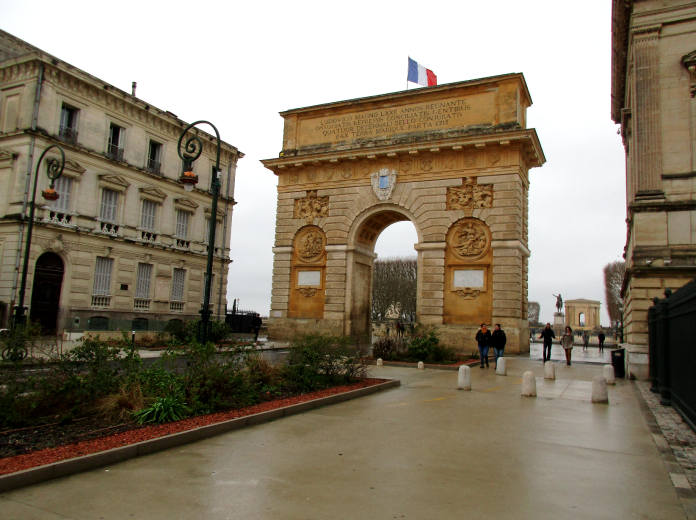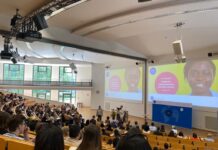This country needs more scientists. Why? Because scientists are the gateway and pioneers of advancement and innovation. But how does one end up becoming a scientist? Our contributor, Febriana, shares her journey.
In a modern world, a nation cannot develop and compete without having strong scientific advancement, and to achieve that, a sense of pride in having a scientific culture needs to be developed. Younger generation needs to be taught and shown that science can lead their nation to greater things. We don’t even need to look back so far; only years ago we were capable of building our own modern airplanes. A lot of work needs to be done, a lot of field needs their scientists, and who else could fulfill those needs other than the younger generations?
Let’s pause here for a while. Working as a researcher or scientist is not a dream job for most Indonesians. Indonesia currently has a deficit of researchers (in 2017, there were only 90 researchers in every 1 million citizens). This fact has effectively put me as a minority because the dream of becoming a scientist has been so natural to me since I was a kid. I grew up being surrounded by academics. Almost every adult in my family is a researcher, a teacher, or the combination of those two. It’s no wonder then that I started developing an interest to become a scientist since a very young age. Coupled with a pleasant fact that I actually find joy in learning and studying, I have thus studied, learned, read, and took many opportunities which showed up before me. I believe that, for Indonesia to be able to unleash its full potential at the global stage, each one of its citizens should contribute, and thus I have committed to contribute through my profession as a researcher.

Of course, paving the way to make a small dent in the scientific advancement is not an easy task. I have to work really hard and learn as much as I can. One such way is through pursuing my PhD in France. It’s not the only way, of course, but in my opinion it’s an important step. There are a lot of things that you could and should do if you want to become researchers. That’s why I would like to share to you several tips and things that you should do if you want to become a researcher as well.
First of all, surround yourself with peers who have the same interests. To get that, you have to actively look for opportunities. In my case, after I graduated from my master’s program, I spent several months helping my professor in Institut Pertanian Bogor (IPB) as a research assistant in the Laboratory of Wood Quality Improvement. I should admit, it is quite difficult to find a job vacancy or even internship opportunities related to my subject area—forestry, with specialization in wood science and technology and sub-specialization in wood chemistry—in Indonesia.That’s why it was a pleasant surprise for me to find, in 2017, an open position in the Young Researchers program, hosted by WRI Indonesia, an independent research institution that focuses on the environmental issues and socio-economic development in Indonesia.
I took the opportunity, I did the job and gained many valuable things, such as mentors, network of researchers from other disciplines, a more open mindset, as well as the opportunity to learn how to relay my subject and research and apply their results and how to cooperate with both the public and private sector. During my time at WRI Indonesia, I helped my team on a research project regarding the feasibility of applying wood identification technology as a timber tracking system in Indonesia. It was actually an important subject, especially to support our efforts in combatting illegal logging. And it was really a good experience; even right now, having started my PhD, I still feel that a lot of the things I got there are really useful and applicable. It’s truly something that I think all young researchers should have during their early career. Looking back now, I am very grateful that WRI Indonesia has opened its door to young people aspiring to become a researcher and hopefully there will be more think-tanks in Indonesia who do the same.

Second, make yourself a master in a specific scientific field. Having research specialties is important because it can make our research results really sharp. At the same time, having too specific a specialization could be challenging. And not only challenging when it comes to finding a job but also really having the specific knowledge for our field, the competencies needed for facing real-life jobs, as well as the proficiencies for handling the situation where we need to communicate our needs for funding, the use of our research, and the skills for facing another professional situation.
To do that, we need time to learn and apply our knowledge in real-life jobs. The question is, how much time, exactly? It depends on the field, but most people regard 10.000 hours as the necessary time needed to really master something. That’s why, since a long time ago in France, and perhaps in many other countries, students are encouraged to join an internship program, normally during the second semester of an academic year. Myself, I had a very good opportunity to spend a very valuable semester of internship in France. It was good, yet 6 months is not enough, especially to prepare young people who want to become true scientific researchers. Scientific skills and mindset cannot be quickly instilled; they take a long time to be planted and fully implemented in our daily and professional lives. The need for experience, and for that, an adequate place for young prospective researchers in Indonesia to learn and try in professional setting, is undoubtedly paramount if we really want to develop a scientific culture in our country.

Finally, the steps to become researchers should have started long time ago in each family. Family is where a child first learns, and parents’ role is inarguably important in shaping their children’s want to learn. Developing a culture of learning for kids must be done by families in our country. Combined with formal education and training, I believe that such a thing will lead to great scientific advancements for our society.
By the way, WRI Indonesia is currently opening its second batch of Wahana Riset Indonesia. This is a rare opportunity for the curious minds to conduct research in sustainable development area. The deadline of the application is on July 6th, 2018. You can visit the website to learn about the requirement further.










